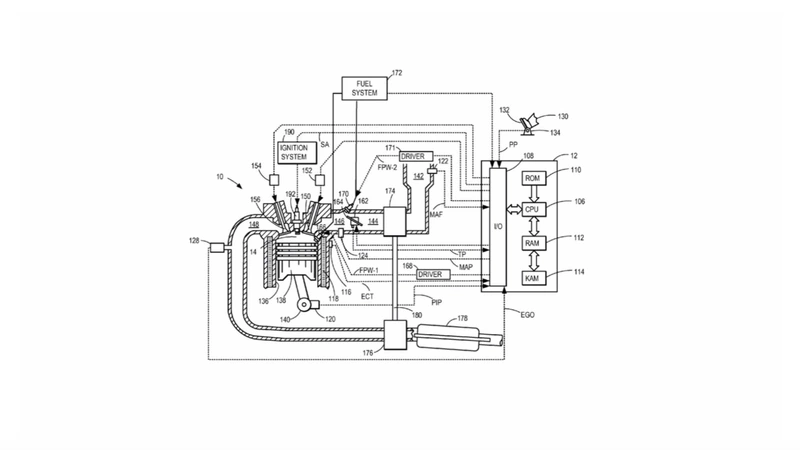Ford patents a hydrogen-powered engine.

Patent documents reveal that Ford is experimenting with hydrogen-burning engines. Not to be confused with fuel cell powertrains, the patent relates to a conventional internal combustion engine that burns hydrogen instead of gasoline or diesel and produces zero harmful emissions.
The patent application, first discovered by Muscle Cars & Trucks and filed with the United States Patent and Trademark Office (USPTO), describes a method of hydrogen combustion combined with turbocharging and exhaust gas recirculation. Notably, such hydrogen engines can operate with a much leaner mixture than conventional gasoline engines.
In its application, Ford also proposes using hydrogen engines as part of a hybrid powertrain with an electric motor-generator between the engine and transmission.
Hydrogen-burning engines are not new; in the early 2000s, BMW produced the Hydrogen 7, a 7 Series sedan powered by a hydrogen-powered V12 engine. More recently, Toyota and Yamaha have partnered to develop a hydrogen racing engine for the Japanese Super Taikyu series.7]
Toyota has stated that it hopes hydrogen will address the environmental impact of internal combustion engines and allow driving enthusiasts to enjoy them. Presumably, Ford is thinking the same thing.
However, hydrogen has many potential problems that could make this idea unrealistic. Fuel supply infrastructure is still limited, and manufacturing and distribution can be a significant source of emissions. In addition, hydrogen combustion engines may prove to be less efficient than fuel cells and less efficient in their use of energy than batteries.


